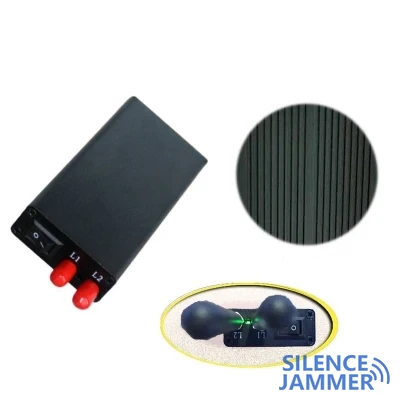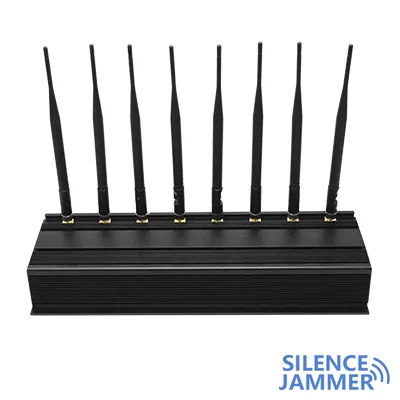In this era of ubiquitous smart devices and location services, GPS (Global Positioning System) has become an indispensable part of our lives. Whether it is navigation, finding a car, running records, or emergency rescue, GPS signals play a vital role. However, in some cases, we want to block these signals to protect privacy or prevent tracking. We know that GPS signal blockers or some cell phone jammers can help mobile phones achieve this purpose. So, can mobile phone shielding bags block GPS signals?
Characteristics of GPS signals
To understand whether mobile phone shielding bags can block GPS signals, we first need to understand the characteristics of GPS signals.
- Frequency range
- L1 band: 1575.42 MHz, used for civilian navigation.
- L2 band: 1227.60 MHz, used for military applications.
- Data Transmission
- How Faraday Bags Work
- Multi-layer shielding

GPS signals are mainly divided into two categories:
GPS signals are weak radio waves emitted by satellites and transmitted to ground equipment. These signals can penetrate clouds, glass, and plastic, but are less able to penetrate buildings and metal.
GPS satellites continuously send timestamps and satellite location data, and receiving devices (such as mobile phones) calculate their own location by receiving multiple satellite signals.
Conductive materials (such as metal fibers, metal mesh, or metal foil) form a closed shielding layer. When electromagnetic waves (such as GPS signals) hit the conductive material, the free electrons in the material will rearrange to form an electric field that is opposite to the external electromagnetic field, thereby canceling the influence of the external electromagnetic field. As a result, the electromagnetic waves cannot penetrate the conductive material and enter the Faraday bag.
Some high-quality mobile phone shielding bags are designed with multiple layers of conductive materials to enhance the shielding effect. The smaller the gaps between these layers, the better the shielding effect.

Can mobile phone shielding bags shield GPS signals?
- Electromagnetic wave shielding
- Frequency and materials
- Closedness
- Practical application scenarios
- Privacy protection
- Information Security
- Prevent Tracking
- Precautions for using Faraday bags
- Ensure a tight seal
- Regular inspection
- Avoid Overfolding
The answer is yes, mobile phone shielding bags can shield GPS signals. Below we explain in detail why and how it works.
GPS signals are a form of electromagnetic waves. When electromagnetic waves hit conductive materials, the free electrons in the material will rearrange to form an electric field opposite to the external electromagnetic field, thereby offsetting the influence of the external electromagnetic field. As a result, electromagnetic waves cannot penetrate the conductive material into the Faraday bag.
GPS signals have a lower frequency (L1 band 1575.42 MHz, L2 band 1227.60 MHz) and a longer wavelength, but their signal strength is weaker. High-quality Faraday bags are usually made of multiple layers of conductive materials, which can effectively reflect and absorb electromagnetic waves in these frequency bands and have good shielding effects.
The shielding effect of the Faraday bag also depends on its closedness. If the opening of the bag is not completely sealed, electromagnetic waves may enter the bag through the gap, thereby reducing the shielding effect. Therefore, when using a Faraday bag, make sure that the bag opening is completely closed.
Faraday bags have many practical application scenarios in real life, among which the need to shield GPS signals is also common.
In some cases, you may want to prevent your phone or other device from being remotely located or tracked via GPS. For example, when traveling or on a business trip, using a Faraday bag can prevent the device from leaking its location and protect privacy.
In environments that require high confidentiality, such as government agencies, military facilities, or scientific research laboratories, Faraday bags can prevent devices from unauthorized positioning through GPS and ensure information security.
Some devices use GPS signals for location tracking, such as vehicle systems and certain smart devices. Placing the device in a Faraday bag can prevent the transmission of tracking signals and protect personal privacy.
Every time you use a Faraday bag, make sure the seal is completely sealed to prevent any signal from leaking through the gap.
Check the integrity of the Faraday bag regularly and replace it in time if any damage or wear is found.
Avoid frequent or excessive folding of the Faraday bag to avoid damaging its shielding material and affecting the shielding effect.
Conclusion
In general, Faraday bags can effectively shield GPS signals. This is because GPS signals are a form of electromagnetic waves, and the closed space formed by the conductive material of the Faraday bag can reflect and absorb these electromagnetic waves. When selecting and using a Faraday bag, paying attention to material quality and closure is the key to ensuring shielding effectiveness.


